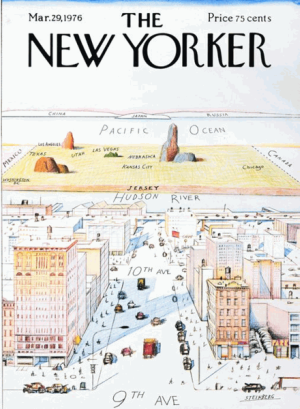(Third and final part; see Part One and Part Two.)
In his July 27 article in the New Yorker, Jeffrey Toobin seems to think that what is holding the Flores family in immigration-policy limbo is the hard-hearted stubbornness of congressional Republicans. In the manner described so well by Jonathan Haidt in his landmark book The Righteous Mind, Toobin appears to be blind to much larger realities in our immigration debate, which unfolds against the turbulent background of five decades of mass illegal immigration.
What is at stake is the potential for many more decades of even more chaotic illegal immigration as immigration networks spread around the world. It is the social and political consequences of the vast increase in the number of the nation's poor and poorly educated. It is the growing gap between rich and poor, which is partly the result of mass illegal immigration. It is immigration's effects on a labor market from which Americans are often displaced. It is the rapid growth of the U.S. population, an issue that liberals used to care passionately about until the growth started to come mostly from immigrants and their children. It is all this and more that many otherwise brilliant and open-minded liberal intellectuals like Jeffrey Toobin seem incapable of seeing.

Toobin lives on the island of Manhattan. That may help explain his inability to recognize concerns that are widespread across the country. He brings to mind the famous New Yorker cover that shows a New Yorker's view of the world. The view is dominated by Manhattan, with a field of vision that reduces everything beyond the Hudson to geographical vagueness and metaphysical irrelevance.
Toobin, a sincere liberal, sees illegal immigration as the story of fellow human beings who are hungry and poor and in need of refuge. He laments the Republican failure to engage on the issue. He quotes Clarissa Martinez of the National Council of La Raza, who works to organize the growing Latino vote to punish those who resist the reforms demanded by La Raza and its allies at the U.S. Chamber of Commerce. He sees clearly that many Republicans have moved to the right on immigration, fearful of the party base, and its alarm about illegal immigration, and its belief that party leadership is being cowed into submission.
I wish Toobin would examine the work of Jonathan Haidt, a lifelong liberal who came to admire the conservative moral sensibility championed by Edmund Burke, which is both respectful of tradition and mindful of the need for reform. Haidt asks a big question: "Might conservatives have a better formula for how to create a healthy, happy society?"
Once an all-in liberal, Haidt has come to believe that conservatives had a better understanding of how to protect what he calls "moral capital," the ability of human beings to cohere, to organize for the common welfare, and to restrain inclinations to selfishness and disorder. (He is careful to distinguish this traditional conservatism, which he finds admirable and wise, from what he sees as the reactionary conservatism of right-wing Republicans.)
I was particularly struck by this conclusion in The Righteous Mind:
I believe that liberalism – which has done so much to bring about freedom and equal opportunity – is not sufficient as a governing philosophy. It tends to overreach, change too many things too quickly, and reduce the stock of moral capital inadvertently. Conversely, while conservatives do a better job of preserving moral capital, they often fail to notice certain classes of victims, fail to limit the predations of certain powerful interests, and fail to see the need to change or update institutions as times change.
I want immigration to be reformed. I want the Flores family to be able to stay in the U.S. But I also want our government to take action to prevent our country from being overwhelmed. That is a scenario that Toobin, the New Yorker, and so much of our intellectual elite have failed to consider. It seems to be beyond their field of vision. They can deal with the implications of climate change because of climatic conditions unregulated by governments. They can't deal with the implications of mass immigration, which our government has failed miserably to control. That is a major reason for the intemperate outburst of Donald Trump that dismayed Jeffrey Toobin and propelled him to write his narrow-minded article for the New Yorker.
